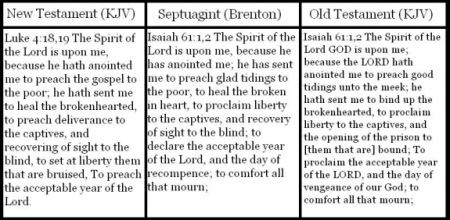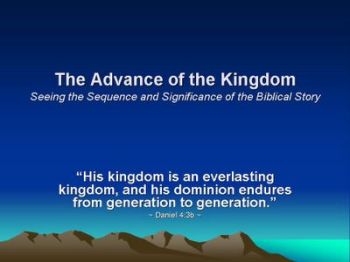 Today marks 500 years since the birth of John Calvin. Although Luther nailed his 95 theses on the church door in Wittenburg when Calvin was just 8 years old, it is John Calvin who is arguably the most famous (some might say, infamous) of the Reformers. His work in Geneva has an abiding relevance and lasting influence down to today in both the church and the state. Two hundred years before Montesquieu’s doctrine of the “separation of powers” (which was later adopted by our US Constitution), Geneva adopted political reforms operating on the same principle. In fact several historians have argued that Calvin is in large part responsible for the democratic experiment that is the United States of America.
Today marks 500 years since the birth of John Calvin. Although Luther nailed his 95 theses on the church door in Wittenburg when Calvin was just 8 years old, it is John Calvin who is arguably the most famous (some might say, infamous) of the Reformers. His work in Geneva has an abiding relevance and lasting influence down to today in both the church and the state. Two hundred years before Montesquieu’s doctrine of the “separation of powers” (which was later adopted by our US Constitution), Geneva adopted political reforms operating on the same principle. In fact several historians have argued that Calvin is in large part responsible for the democratic experiment that is the United States of America.
Today, I wanted to collect some helpful links for the study of Calvin. His influence and legacy deserve attention. The closer you look into the life of this man Calvin, the more absurd modern caricatures of him as a power-hungry, harsh, domineering and unfeeling leader will become. In truth, he was a humble man who was thrust into leadership often against his will. He sought to follow Scripture in all he did, and gave his life to the cause of living the Bible out in all spheres of life for God’s glory. He preached an average of 20 sermons a month, and wrote commentaries on almost every book of the Bible. His Institutes of the Christian Religion is still a treasured and worthy systematic theology book, studied with benefit by many.
Before I provide some links to other posts on Calvin today, let me offer an excerpt from the introduction to his commentary on Psalms. Here Calvin offers a rare autobiographical sketch which gives us insight into his soul. The section I quote here will reveal a bit of the real Calvin’s motives, I hope.
My readers, too, if I mistake not, will observe, that in unfolding the internal affections both of David and of others, I discourse upon them as matters of which I have familiar experience. Moreover, since I have labored faithfully to open up this treasure for the use of all the people of God, although what I have done has not been equal to my wishes, yet the attempt which I have made deserves to be received with some measure of favor. Still I only ask that each may judge of my labors with justice and candor, according to the advantage and fruit which he shall derive from them. Certainly, as I have said before, in reading these commentaries, it will be clearly seen that I have not sought to please, unless insofar as I might at the same time be profitable to others. And, therefore, I have not only observed throughout a simple syle of teaching, but in order to be removed the farther from all ostentation, I have also generally abstained from refuting the opinions of others…. I have never touched upon opposite opinions, unless where there was reason to fear, that by being silent respecting them, I might leave my readers in doubt and perplexity. At the same time, I am sensible that it would have been much more agreeable to the taste of many, had I heaped together a great mass of materials which has great show, and acquires fame for the writer; but I have felt nothing to be of more importance than to have a regard to the edification of the church. May God, who has implanted this desire in my heart, grant by his grace that the success may correspond thereto! [quoted in A Reformation Reader: Primary Texts with Introductions edited by Denis Janz, (Minneapolis: Fortress Press, 2008), pg. 254]
Other posts on Calvin’s 500th Birthday, from around the web:
- Justin Taylor of Between Two Worlds, share’s his birthday with Calvin
- Desiring God offers a special sale today only of a classic biography (Parker’s) of Calvin for only 2$ plus shipping.
- UPDATE: IVP is offering a new biography, John Calvin: A Pilgrim’s Life by Herman Selderhuis at a 30% off discount too.
- Ligonier Ministries is offering John Calvin: A Heart for Devotion, Doctrine and Doxology edited by Burk Parsons, for a donation of any amount today.
- My friend John Chitty at Captain Headknowledge is providing excerpts on an overview of Calvin’s life: part one, part two, part three & part four.
- Calvin500.org offers online biographies of Calvin’s life, I read this one: an excerpt from David Hall’s book. It’s a great overview of his life that you can read in around 30 minutes or so.
- Tony Reinke shares a wonderful excerpt from a sermon by Calvin on the Tree of Life, where he discusses his view of sacraments.
- David Kjos, the Thirsty Theologian, reminds us of his Calvin flub, where he posted links about Calvin’s birthday one month ahead of time! The links are still worth checking out.
- John Samson at Reformation Theology, reflects on Calvin’s legacy and how Calvin himself would not have been pleased that his name was tied to Reformed theology.
- Marvin Olasky has a short editorial in World Magazine on Calvin as Liberty’s Champion.
- Koinonia will be posting excerpts from Calvin all month long.
- Frank Bellizzi highlights Calvin’s abiding influence, noting that the so-called New Calvinism was recently pointed out as one of the 10 ideas changing the world again, by Time magazine. (HT: The Contemporary Calvinist)


